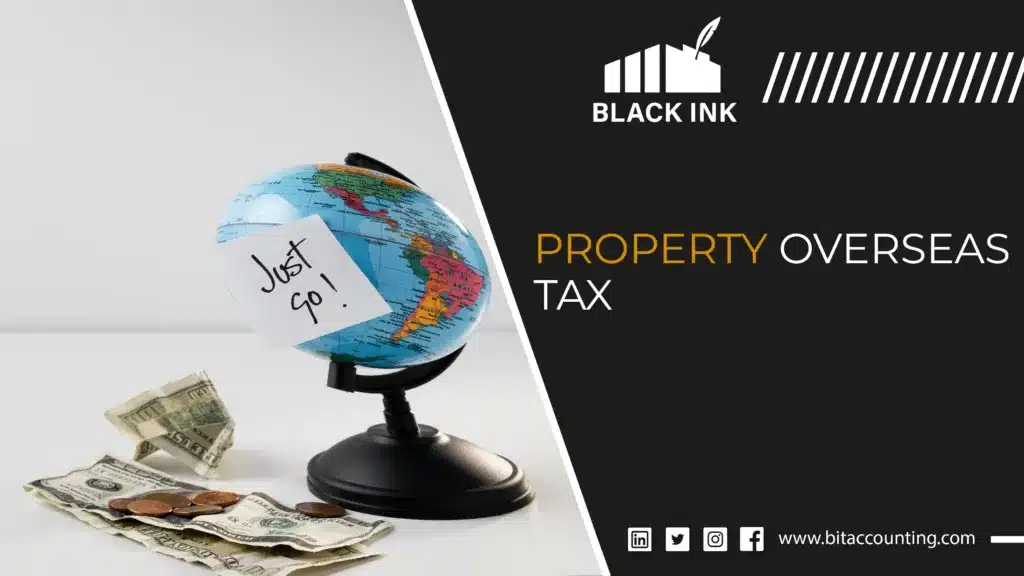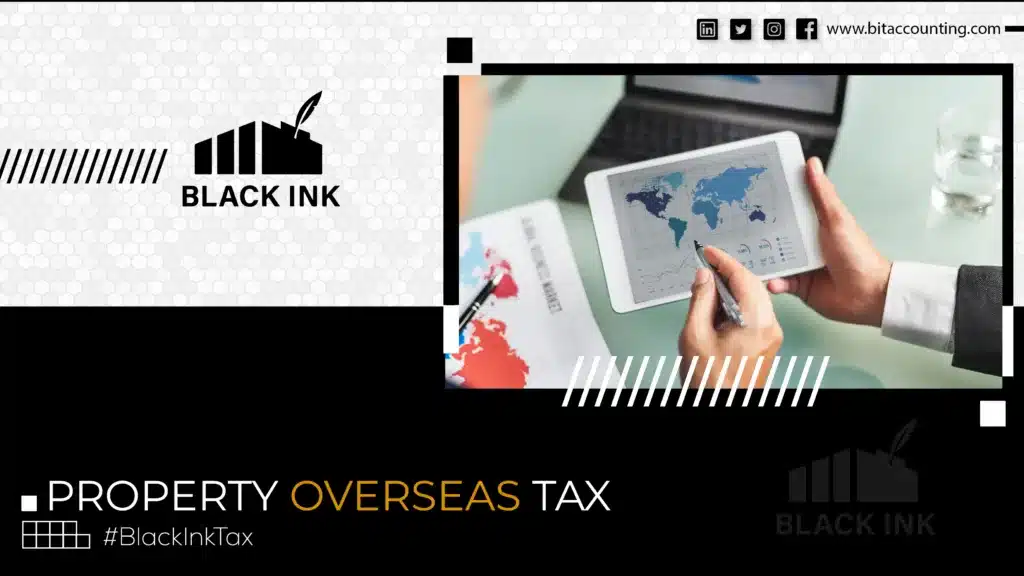
Table of Contents
Property Overseas Tax: What Every International Investor Must Know
As global investing becomes more popular, many U.S. residents are buying property in other countries. Whether it’s a vacation home, a rental apartment, or a long-term investment, owning property abroad can be a smart move. But it also comes with tax responsibilities that are easy to overlook.
Understanding how the United States tax system treats foreign property is essential. Missing a form or ignoring a rule can lead to large IRS penalties. That’s why this blog will guide you through what every investor should know about Property Overseas Tax, including important forms, deductions, and tips to stay compliant.
Understanding U.S. Tax Obligations for Foreign Property Owners
When you own property outside the U.S., you’re still under the watchful eye of the Internal Revenue Service (IRS). Here’s how the U.S. tax rules apply to international property owners.
Worldwide Income Taxation
In the U.S., citizens and residents must report worldwide income on their tax return, no matter where it comes from. This means that money earned from renting out a property overseas must be reported to the IRS.
Key IRS tax forms for foreign property owners include:
- Form 1040: The main income tax return form.
- FBAR (FinCEN Form 114): Used to report foreign bank accounts.
- Form 8938: Required under the Foreign Account Tax Compliance Act (FATCA) for reporting foreign assets.
Reporting Rental Income from Overseas Property
Money you earn from renting your overseas property is taxed as ordinary income in the U.S. You may also qualify for certain tax deductions such as:
- Property management expense
- Maintenance and repairs
- Depreciation of the property over time
- Travel costs related to managing the property
To avoid double taxation, you can use the Foreign Tax Credit (Form 1116) to get credit for taxes you’ve already paid to the country where your property is located.
Capital Gains Tax on Foreign Property Sales
When you sell your overseas property, you may owe capital gains tax. This depends on the cost basis (what you paid), how long you owned it, and the selling price.
- Short-term gains (owned under a year) are taxed at your regular income tax rate.
- Long-term gains (owned more than a year) are taxed at a lower tax rate, depending on your filing status and income.
You might also qualify for exemptions, like the primary residence exclusion, if you lived in the home for at least two of the last five years.
Key IRS Forms for Foreign Property Owners
Filing the right forms is critical. Missing one could trigger high fines or an audit. Below are the main documents you may need to complete.
FBAR (Foreign Bank Account Report – FinCEN Form 114)
Under the Bank Secrecy Act, if the total value of all your foreign accounts goes over $10,000 at any point in the year, you must file FBAR. This includes accounts tied to your overseas property, like rent collection accounts.
Penalties for not filing can be thousands of dollars—even if you didn’t know about the rule.
FATCA (Form 8938 – Foreign Asset Reporting)
This form is part of the Foreign Account Tax Compliance Act. It applies to those who own foreign assets worth more than a certain amount. The thresholds depend on whether you file as single, married, or jointly.
Though similar to FBAR, FATCA has different rules and reporting details. You may need to file both.
Form 3520 (Foreign Trusts & Gifts)
If you receive foreign property as a gift or inheritance, Form 3520 might apply. It’s also needed if your property is held in a foreign trust. Filing this form keeps you compliant with United States law and helps avoid issues with tax avoidance.
Tax Treaties and Avoiding Double Taxation
The U.S. has tax treaties with several countries to help prevent being taxed twice on the same income.
How Tax Treaties Work
These agreements affect how much tax is taken out of your payments or profits in another country. Treaties may reduce withholding taxes on rental income or capital gains in countries like the UK, Canada, or Mexico.

Foreign Tax Credit (Form 1116)
If you pay taxes to a foreign government, you may be eligible for a tax credit through Form 1116. This helps reduce your U.S. tax bill. However, there are limits, and not all foreign taxes count.
You can also carry forward unused credits for future years, which helps manage long-term investment strategies.
Foreign Earned Income Exclusion (FEIE) – Does It Apply?
The Foreign Earned Income Exclusion lets U.S. taxpayers exclude income earned abroad—but it only covers wages or self-employment income, not rental income or capital gains. So, it doesn’t help much with property tax on foreign homes.
Special Considerations for Different Property Types
Different types of property are taxed in different ways. Here’s what to know based on how you use the real estate.
Vacation Homes vs. Rental Properties
If your property is just for fun and not rented out, you can’t claim many deductions. But if it’s a rental:
- You can deduct upkeep, mortgage interest, insurance, and depreciation.
- Be aware of passive activity loss rules, which may limit deductions if you don’t actively manage the property.
Inherited Foreign Property
If you inherit property from abroad, you may owe estate tax in the United States depending on its value. But you may also benefit from a step-up in basis, which adjusts the property’s value to what it was worth at the time of inheritance.
Owning Property Through a Foreign Entity
Some people hold their property through a foreign corporation, trust, or LLC to simplify management or reduce local taxes. But this adds more U.S. tax reporting:
- Form 5471 (for foreign corporations)
- Form 8865 (for partnerships)
If the entity is classified as a Passive Foreign Investment Company (PFIC), different rules may apply, making taxes more complicated.
Common Mistakes & How to Avoid Them
Many investors run into trouble simply because they don’t know the rules. Avoid these common slip-ups:
- Not reporting foreign bank accounts – triggers FBAR penalties
- Ignoring local taxes – can lead to double taxation
- Misclassifying property use – using it for personal travel but deducting it as a rental
- Failing to file FATCA or forgetting other important forms
Steps to Stay Compliant
Staying compliant with international taxation rules isn’t easy, but these steps can help:
- Keep detailed records – Save every receipt, income report, and document related to your property.
- Work with a pro – A Certified Public Accountant (CPA) or tax expert who understands international taxation can save you money and stress.
- File forms on time – FBAR is due by April 15, while FATCA goes with your regular return.
- Watch for law changes – Tax laws change often. Stay updated with changes in both the U.S. and the country where your property is located.
Conclusion
Owning property overseas can be a rewarding investment, but it also comes with important Property Overseas Tax rules. From income tax to capital gains tax, to filling out the right IRS tax forms, there’s a lot to stay on top of.
To make sure you’re staying legal and saving money, work with professionals who understand these rules. That’s where BIT Accounting comes in. Our team knows how to handle international taxation, report foreign income, and protect your wallet from IRS penalties.
FAQs
1. Do I need to report foreign rental income to the IRS?
Yes, the U.S. taxes worldwide income, including foreign rental profits.
2. Can I avoid double taxation?
Yes, with the Foreign Tax Credit or by using tax treaty benefits.
3. What’s the difference between FBAR and FATCA?
FBAR is for foreign bank accounts over $10,000. FATCA (Form 8938) is for foreign financial assets, and has higher thresholds.
4. What if I own property through a foreign company?
You may need to file Form 5471 or 8865 depending on the type of entity.
5. How can BIT Accounting help?
We help you stay compliant with U.S. tax law, file the correct forms, and avoid costly mistakes.
GET FREE QUOTE FOR ALL OF OUR SERVICES
Black Ink will send you a free analysis of your current state and what would be the cost of managing either a separate accounting and bookkeeping services or a complete solution across New York, USA. Do get in touch and we will be happy to consult you with our bookkeeping services in NY, New York, USA.
